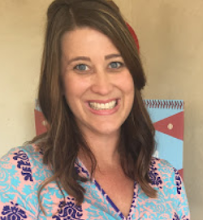This week in project we've been studying, diagramming, and modelling aspects of our brain!
Four essential learnings:
- Everyone can learn to high levels
- Mistakes and challenge grow our brain
- Believe in yourself -- your mindset matters
- Speed is not important!
Our neuron models...
Our Second Graders culminated their fluency study by taking on the role of teacher! We visited Ms. Toman's First Graders and taught them how good readers know how to read smoothly, like talking, and with expression! We practiced independently, then with each other, and finally, we had our moment in the sun!
Third Grade finished Wilma Unlimited, and discovered structural differences between Biographies and Nonfiction Narrative. We brainstormed a personal narrative using two different formats. Our spelling centers are well underway, as well as Mountain Language and Homonym.
Fourth Grade is deep into analyzing our character, Phoebe. We have formed theories about her struggle and used signposts to support our ideas. We are responding both in written and discussion form, which provides a rich reading/writing experience. We have been testing out different planning forms for expository pieces, and we are selecting a format that works best for us as individuals. Spelling, Mountain Language, and Homonym are in motion as well!
4th grade mathematicians had a little fun with human place value this week. They built 6-digit numbers and then worked to round their numbers to the nearest hundreds, one thousand, and ten thousand places. We had a blast becoming different digits and then figuring out how to round numbers by all of these different multiples. We also had a great discussion about how estimation is such a useful math strategy in many settings.


3rd grade mathematicians have been working hard to communicate clearly using mathematical language. We had several great discussions this week about how we need to justify our reasoning. We're also becoming experts at decomposing 6-digit numbers in a variety of different ways. One of our favorite activities this week was a matching game where we had to find a group of 3 friends with our same number in 3 different forms: standard form, word form, and expanded notation. We've played this fun whole-class game several times and we're becoming more confident and fluent with practice.
2nd graders created Digit Riddles by decomposing 3 and 4-digit numbers. They wrote clues about how many hundreds, tens, and ones were in their mystery number. To make our riddles a little tricky, we used some "funny" numbers. Funny numbers have a value higher than 9 in any place value position. We use these funny numbers to help us think flexibly about place value and to prepare us for regrouping. Here are a few digit riddles that will make you think carefully about what the answer would be in standard form:
This was a busy week for SBLC scientists and historians! On Monday, we read September Roses, a story of two sisters who responded to the tragedies of 9/11 with kindness and compassion. After discussing how compassion is empathy in action, our thoughtful historians used Padlet to brainstorm ways they could comfort someone in need. Truly touching!
Enjoy the weekend,
Team SBLC














Comments
Post a Comment